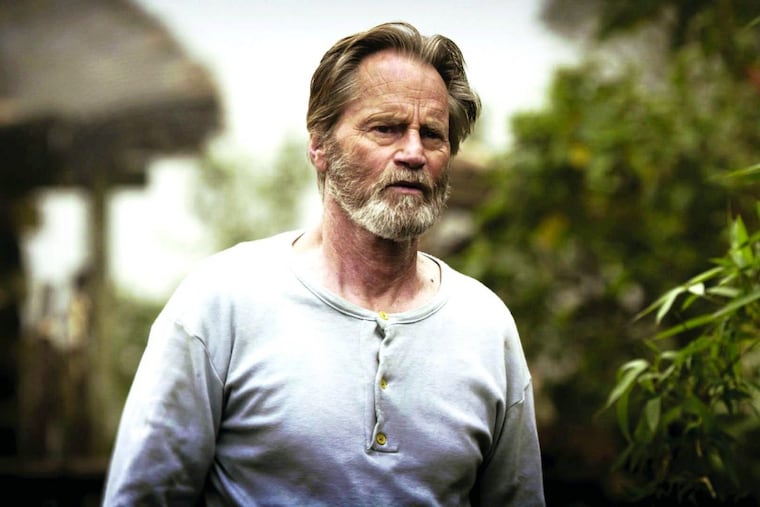Sam Shepard: Philly theater company remembers the Pulitzer-winning playwright
Sam Shepard, playwright, actor, novelist, producer, director, and so much more, was among the most consistent and accomplished in U.S. drama.

"What drew us to him is the way he talked about America."
John Doyle, artistic director of the Iron Age Theatre Company in Norristown, is speaking of Sam Shepard, the celebrated Pulitzer Prize-winning playwright, Oscar-nominated actor, author, and self-styled "rock 'n' roll Jesus with the cowboy mouth," who died July 27 at 73. Family spokesman Chris Boneau said Monday that Shepard died at his home in Kentucky from complications related to Lou Gehrig's disease, or amyotrophic lateral sclerosis.
Doyle's company has done at least five Shepard plays — Buried Child, Simpatico, Fool for Love, Curse of the Staving Class, and The Tooth of Crime — and "we were, ironically, just planning" to do another, The Late Henry Moss, in spring 2018. (Another major local production coming soon is his Simpatico, Sept. 8 to Oct. 15 at the McCarter Theatre in Princeton)
Samuel Shepard Rogers VII was born in Fort Sheridan, Ill., in 1943. He grew up on an avocado ranch in Duarte, Calif. His father was an alcoholic schoolteacher and former Army pilot. Shepard later wrote frequently of alcoholism and alcoholics. He had his own struggles, too; long stretches of sobriety were interrupted by drunk driving arrests, in 2009 and 2015.
Shepard arrived in New York in 1963 with no connections, little money, and vague aspirations to act, write, or make music (he was a drummer who did some work with the Holy Modal Rounders). He quickly became part of the off-off-Broadway movement at downtown hangouts such as Caffe Cino and La MaMa. His early plays — fiery, surreal verbal assaults — pushed American theater in an energized, frenzied direction that matched the times. As he grew as a playwright, he returned again and again to meditations on violence, masculinity, and family.
Shepard's plays have repeatedly reaped the sweetest of all rewards: Dozens of them are perennially popular with regional theaters across the land.
Shepard's movie career began in the late 1970s. He was married from 1969 to 1984 to actress O-Lan Jones, with whom he had son Jesse Mojo Shepard. While making the 1982 film Frances, he met Jessica Lange, and the two remained together for nearly 30 years. They had two children, Hannah Jane and Samuel Walker. They separated in 2009. Lange once said of Shepard: "No man I've ever met compares to Sam in terms of maleness."
Shepard was such a bad-boy celebrity, so attractive, so ornery, that his persona often overwhelmed his massive accomplishment as a man of the theater. Throughout his 44 plays, his unmistakable vocabulary — language, character, setting, and theme — had a huge impact on other playwrights, actors, and moviemakers. His was a theater of the outsider, of people on the fringes of society. Often called "bleak," "spare," "stripped down," it could seem improvised, unwritten. Characters are often inarticulate and burst out in stuttering, machine-gun dialogue, as when Bradley warns Shelly at the end of Buried Child:
But his work could explode into a kind of poetry, too, as in Hobart's painful, panoramic, country-embracing soliloquy in Kicking a Dead Horse:
That's the Sam Shepard revered by Doyle and Iron Age Theatre.
Doyle says he and erstwhile theater partner Randall Wise "came to Shepard out of our attraction to theater of the late 1960s and early 1970s. We began with The Tooth of Crime, which spoke to us about what America is. That's what Shepard does. Across this gap between the surreal and the super-real, he carries on this fascinating conversation about the ideal of America versus the problematic reality of it, its fragmentation, how we live among the truth and the lies. He couldn't be more appropriate today."
Doyle added that "his writing is extraordinarily beautiful, especially breathtaking when you see it played out on stage."
Doyle and Iron Age will celebrate their hero all this week. On the company's YouTube channel, Doyle will post video clips of past Shepard productions. On Friday, the extended family of Iron Age Theatre will post an extended tribute to him there and at their Facebook page.
This article contains information from the Associated Press.